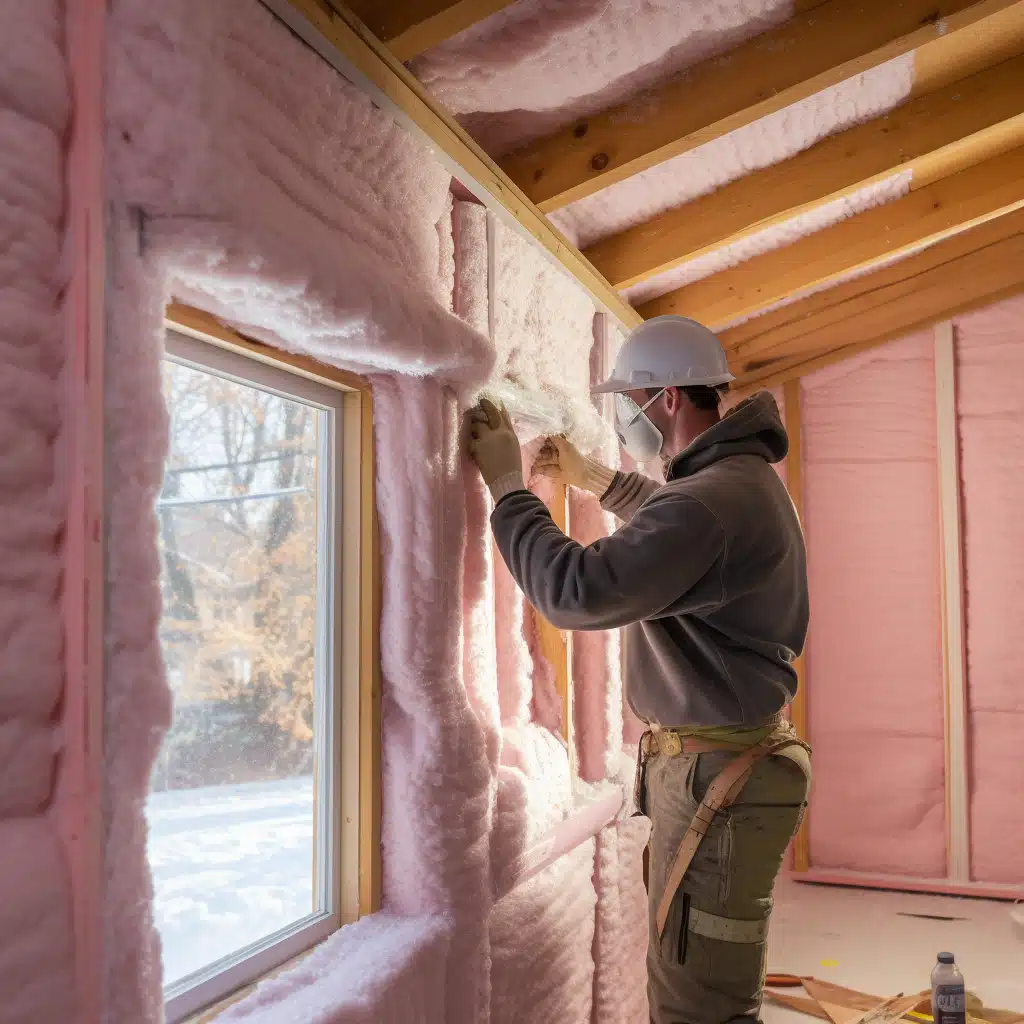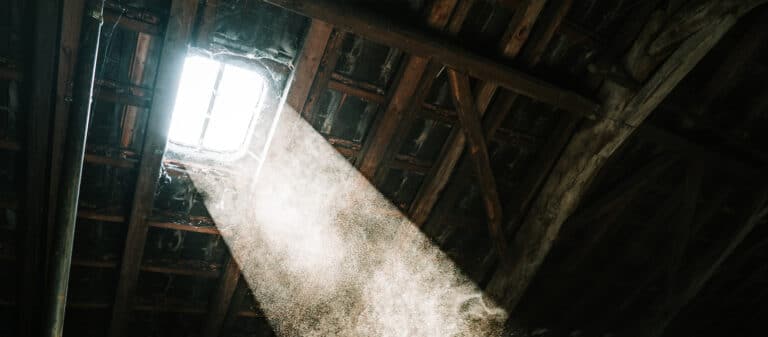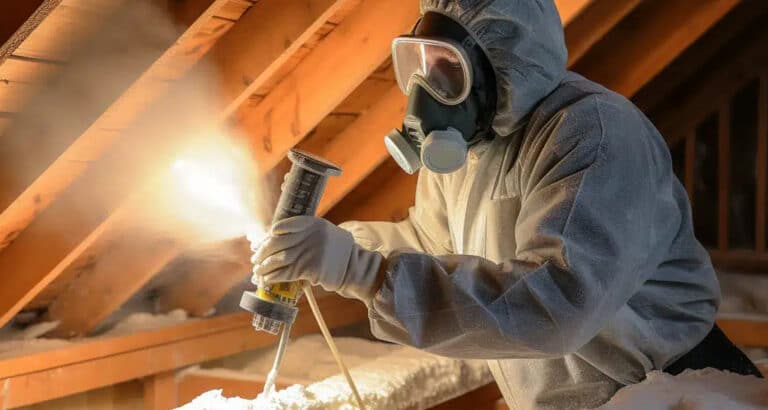Like many parts of the northeast, Northeastern Pennsylvania is not immune from cold frosts and sweltering heat waves from time to time.
Rather than cranking up the AC or furnace to create a comfortable equilibrium, you can offset much of your HVAC costs and still maintain a comfortable home with proper insulation, whether using blown-in or spray foam.
This guide will provide seven benefits of insulation for new and existing homes to help you determine if new insulation is the right move for you.
1. Consistent Comfort in Every Season
Insulation creates a thermal barrier that locks in warm air during the winter and cool air during the summer.
However, it’s not as simple as offering a greater buffer against outside temperatures. New insulation offers great comfort by balancing out temperatures across any given room, eliminating cool drafts or warm spots that occur as a result of poor insulation. No longer will you have to deal with a roaring radiator on one side of the room to heat up another.
Likewise, insulation does take stress off of your HVAC system, eliminating the need to constantly adjust your thermostat for a comfortable temperature.
2. Savings That Matter
Beyond comfort, insulation is a financial ally. By minimizing the need for excessive heating or cooling, insulation significantly reduces energy consumption.
According to the Department of Energy, new insulation can save your home up to 20% on its heating and cooling costs. While an expensive short-term investment, the savings will compound in the long term and pay for itself in a few years.
3. Environmental Responsibility
Choosing insulation isn’t just a personal decision; it’s a commitment to environmental sustainability. By reducing your home’s energy consumption, insulation contributes to a smaller carbon footprint. Companies like EnergySmart even offer blown-in cellulose insulation made with recycled materials that are 100% environmentally friendly and sustainable.
4. Enhanced Soundproofing
Insulation can also create a greater sound barrier between rooms and floors in your home. Materials like spray foam tend to offer the best soundproofing, though most insulation materials will provide some tangible benefit in this regard.
5. Long-Term Structural Integrity
Preserving the structural integrity of your home is crucial, especially in the diverse climate of NEPA. Insulation acts as a buffer against the expansion and contraction of building materials caused by temperature fluctuations and moisture. In turn, insulation protects vulnerable materials like wood from rotting, cracking, splitting, and even collecting mold.
6. Reduced Allergies
Many people are surprised to learn that insulation also creates an effective barrier against allergens, such as dust, pollen, and irritants that pour in from outside.
Recent surveys found that Scranton is one of the worst metropolitan areas for seasonal allergy sufferers. Therefore, new insulation can be an innovative solution to help reduce seasonal allergy symptoms.
7. Increased Home Value
Finally, new insulation is a wise long-term investment. New insulation pays for itself not only through cost savings but also through increased home equity.
For residents looking to sell their homes in the future or builders constructing new homes, the choice to add brand-new insulation is a wise one, especially in a competitive market.
When Is the Best Time to Insulate Your Home?
Installing new insulation during the fall or spring will establish a comfortable home for the following months when it gets warmer or colder. Ideally, any time you can insulate your home will be the best move so you can start saving on bills and create a more comfortable environment.
As inflation continues to spike energy costs and allergies worsen in NEPA, the benefits of installing new insulation have never been clearer. For professional insulation done correctly, contact the experts at EnergySmart for your free quote.
FAQs: Insulation Benefits
How do I know if my home needs insulation?
If you are experiencing high energy bills during the winter months, noticeable drafts, or worsening allergy symptoms, it might be best to install new insulation. EnergySmart provides consultations and quotes to help you assess your options.
Can I install insulation myself?
While some insulation projects are DIY-friendly, professional installation ensures optimal performance. EnergySmart’s trained installers guarantee a job done right the first time.
What is the difference between open-cell and closed-cell spray foam insulation?
Open-cell spray foam is less dense and more cost-effective, while closed-cell spray foam offers higher insulation values and acts as a moisture barrier. The choice depends on your specific needs and budget.










